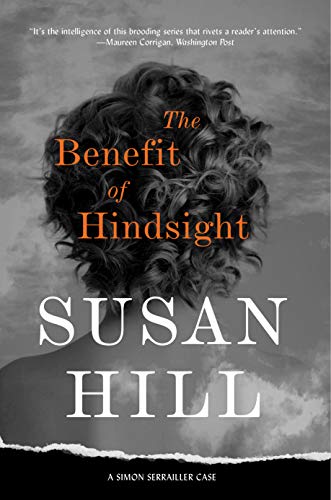Crime fiction is a particular sort of thriller. And some writers are just much better at it than others. This seems to be a particular skill of British novelists, like P.D. James, or Ellis Peters, or Ian Rankin, or for that matter Dorothy Sayers. Susan Hill deserves to be considered in this august company for her Simon Serrailler series. What makes this series of novels especially interesting for Christian readers is that there are in fact some Christian characters in the novels, particularly Dr. Cat Deerbon the sister of Simon.
We might not have expected another volume in this series after the next to last one in which Simon the detective is attacked and loses his arm in the process. But while his arm did not revive from the dead, nevertheless Simon with the help of an artificial limb is back on the job. The problem is, he is suffering from a form of PTSD, and it’s impinging on his ability to even do the job. Frequent panic attacks do not make for clear judgments and smooth evaluations of evidence or critical thinking for that matter.
One of the things that Hill does well is reveal the family life of Simon and Cat and their offspring and Cat’s spouse, and even the father of Cat and Simon, himself a famous doctor. It makes these characters seem more approachable, less lone wolves. As for descriptive powers Hill’s prose is mostly spare, and does not conjure up the vivid images of foreboding that James was so famous for. Evil is quite real in these novels but we are spared some of the gory details, thankfully. Her novels do not tip over into the horror genre.
As for plotting, while there is some suspense along the way, and a surprise or two at the denouement, these novels are not head scratchers, and one can usually figure out how the main story lines will resolve in due course. This is not a bad thing because these novels are not so monolithically focused on crime solving. They provide one with a slice of life from the small fictional town of Lafferton, and one comes to care about the central protagonists in the novel. Their lives matter, and the story need not be all about solving crime. Simon for instance is a skilled artist and Cat is a mainstay in the local choral society. And the novel ends in ‘novel’ fashion with a proper funeral for a beloved feline. Cue Cat Stevens singing ‘Morning Has Broken’.
In just under 300 pages, Hill’s novels are just right. They do not drag things out or belabor minor things to the point of irritation. Rather, you become sucked into a world not of your own making, but one you might enjoy being a part of, especially if you are an Anglophile like me, who’s Witherington ancestry is from northern England. Like a good meal that lasts several hours, here is food for thought that takes a while to digest, and nourishes the mind and the heart and the soul along the way. Hindsight may be 20-20, but there’s many a time when we could have wished to know certain things in advance when we made our choices and took our chances at life. Simon says ‘isn’t that the truth’. Well done Susan Hill.













